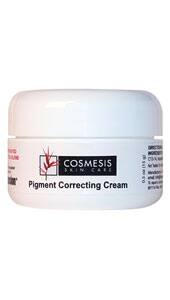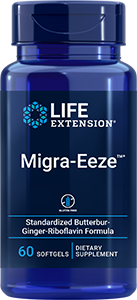Increased magnesium intake association with reduced insulin resistance in men and women with metabolic syndrome
Tuesday, November 12, 2013. The October 2013 issue of the journal Nutrients published the finding of researchers at the University of Massachusetts Medical School of an association between greater magnesium intake and reduced insulin resistance in adults with metabolic syndrome. Metabolic syndrome is characterized by the presence of several cardiovascular disease and diabetes risk factors that include increased waist circumference, high blood pressure, elevated blood glucose and disordered lipids. Previous research findings suggest that supplementation with magnesium could improve insulin sensitivity or insulin resistance in diabetics; however, there are few longitudinal studies that have investigated the protective effects of magnesium in nondiabetics with metabolic syndrome.
The study included 234 nondiabetic clinical trial participants who exhibited three or more metabolic syndrome components. Dietary assessments conducted at the beginning of the study and at six and twelve months were evaluated for the intake of magnesium and other nutrients, and blood samples collected at these time points were analyzed for fasting plasma insulin and glucose in order to evaluate insulin resistance.
At the twelve month mark, only 27.7% of the participants met the recommended daily allowance (RDA) for magnesium as determined by the Institute of Medicine of the National Academy of Sciences, which is 400 milligrams (mg) per day for men and 310 mg per day for women between the ages of 19 and 30 years, and 420 mg for men and 320 mg daily for women over the age of 30. Among men and women whose magnesium intake over the course of the study was among the top 25% of participants, the adjusted odds of having insulin resistance was 71% lower than those whose intake was among the lowest 25%. Among those whose intake of magnesium over time met the U.S. RDA, the risk of insulin resistance was 63% lower than the risk experienced by those whose intake was inadequate.
"Although previous studies have evaluated the protective effect of magnesium, satisfying the RDA is a simple message that can have important clinical meaning," authors Jinsong Wang and colleagues conclude. "These findings indicate that dietary magnesium intake is inadequate among nondiabetic individuals with metabolic syndrome and suggest that increasing dietary magnesium to meet the RDA has a protective effect on insulin resistance." |
 |
 |
 |
|
Researchers from the University of Maine report a protective effect for wild blueberries against some of the adverse effects related to metabolic syndrome, which increases the risk of heart disease and diabetes. The findings were described in an article published on November 6, 2013 in Applied Physiology, Nutrition, and Metabolism. "The metabolic syndrome is a group of risk factors characterized by obesity, hypertension, inflammation, dyslipidemia, glucose intolerance and insulin resistance, and endothelial dysfunction," explained study coauthor Dorothy Klimis-Zacas, who is a professor of clinical nutrition at the University of Maine.
The study tested the effect of a blueberry-enriched diet in a rat model of metabolic syndrome. Thirty-six obese rats and an equal number of lean animals received a diet containing the human equivalent of two cups per day blueberries or a control diet for eight weeks. Aortic vessel vasoconstriction and vasorelaxation, which evaluate endothelial function, and other factors were assessed at the end of the treatment period. "Endothelial dysfunction is a landmark characteristic of metabolic syndrome, and the obese Zucker rat, an excellent model to study the metabolic syndrome, is characterized by vascular dysfunction," Dr Klimis-Zacas observed. "The vascular wall of these animals shows an impaired response to vasorelaxation or vasoconstriction which affects blood flow and blood pressure regulation."
Obese rats underwent improvements in the balance between constricting and relaxing factors, indicating better endothelial function. "We have previously documented the cardiovascular benefits of a polyphenol-rich wild blueberry in a rat model with impaired vascular health and high blood pressure," Dr Klimis-Zacas noted. "Our new findings show that these benefits extend to the obese Zucker rat, a widely used model resembling human metabolic syndrome."
Dr Klimis-Zacas concluded that "by normalizing oxidative, inflammatory response and endothelial function, regular long-term wild blueberry diets may also help improve pathologies associated with the metabolic syndrome." |

- Author interview:
- Reports:
- Departments:
- Journal abstracts:
|
|

|

|
|
Renowned dermatologist Gary Goldfaden, M.D., has developed novel solutions for the most common skin problems encountered by maturing adults. Based on extensive clinical testing, these formulas are designed with potent antioxidant tea extracts (red, green, and white) to correct specific areas of concern, such as the appearance of darkness and puffiness under the eyes, fine lines, rough skin, loose skin, and more. These products can be used in conjunction with any other skin treatments or products.
Pigment Correcting Cream helps even skin tone and lighten areas of discoloration on the hands, neck or chest. It combines alpha arbutin, a natural skin-lightening agent, with a combination of potent antioxidant tea extracts. This formulation lightens large areas of hyper-pigmentation, freckles and spots (like those found on the top of hands). Excellent for all skin types, it can be used daily. |
|

|
|
In Germany, doctors are recommending a natural extract from the herb butterbur (Petasites hybridus) to maintain head cavity comfort. In clinical trials in both Germany and the United States, butterbur reduced the incidence of head cavity discomforts by approximately 61%. Butterbur's principal active constituent, petasin, reduces smooth muscle spasms and helps relax the constriction of cerebral blood vessels. Butterbur's ability to relax constricted arteries and smooth muscle may help control head cavity discomfort.
Migra-Eeze™ contains butterbur root extract standardized to provide 22.5 mg of petasins with each daily dose of two softgels. Riboflavin (vitamin B2) and ginger are included based on the ability of these nutrients to exert functional changes that may also guard against cranial discomfort. |
|
|
 |

|

|
|

